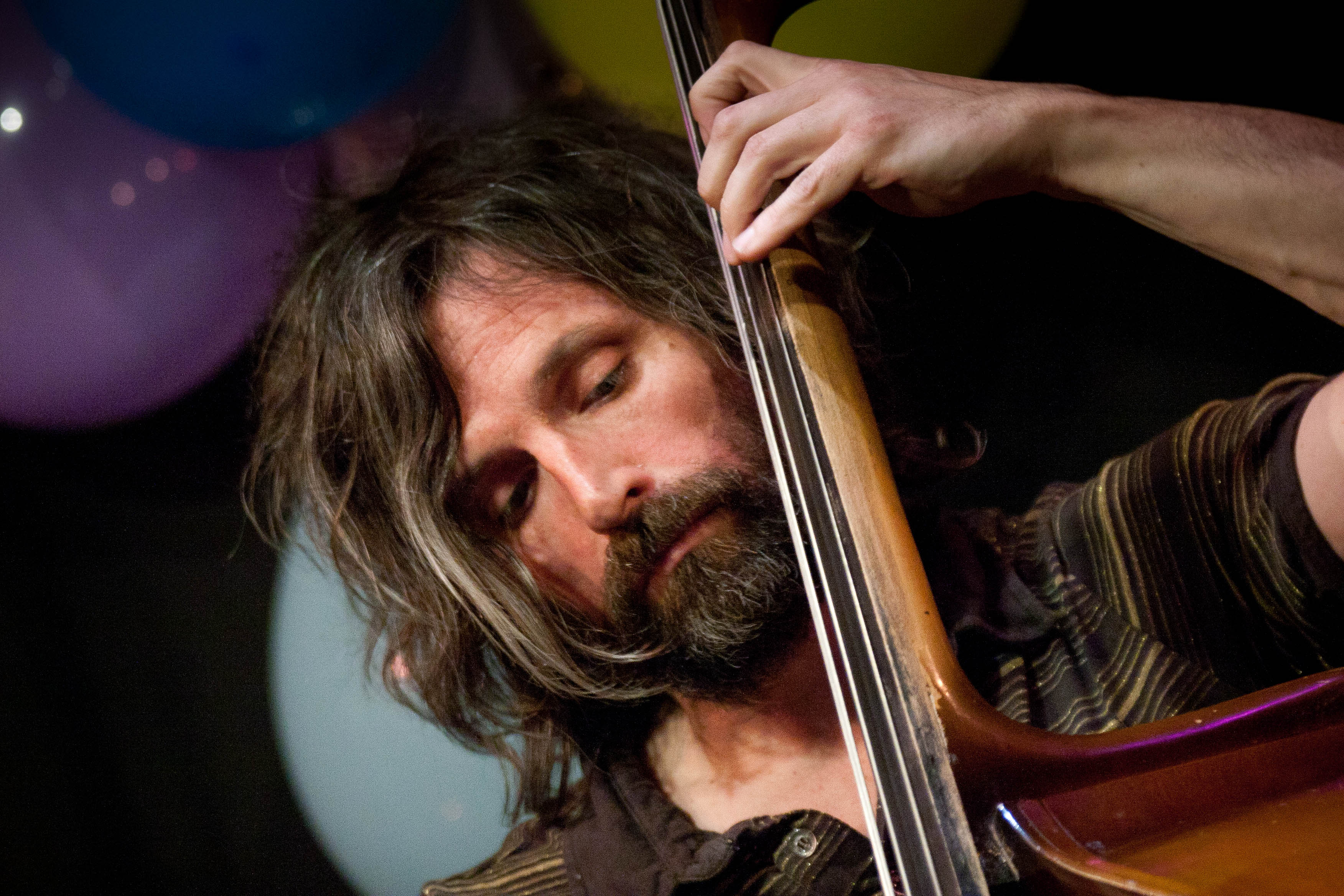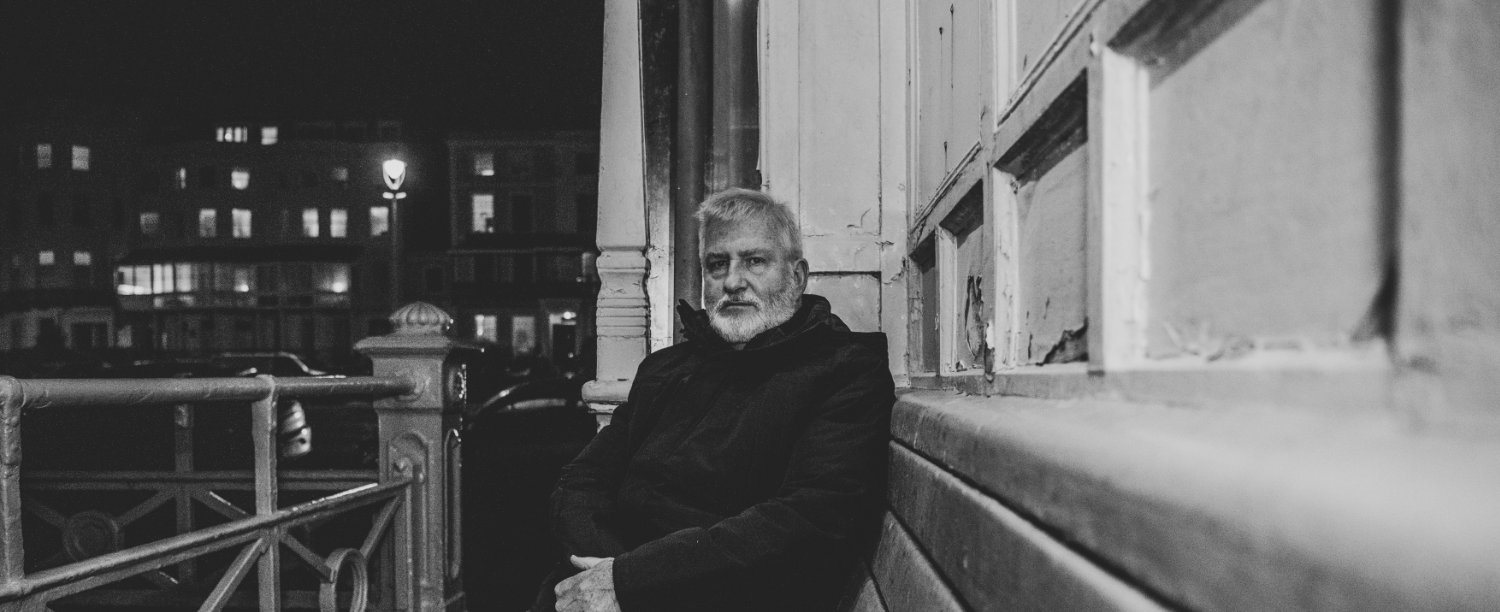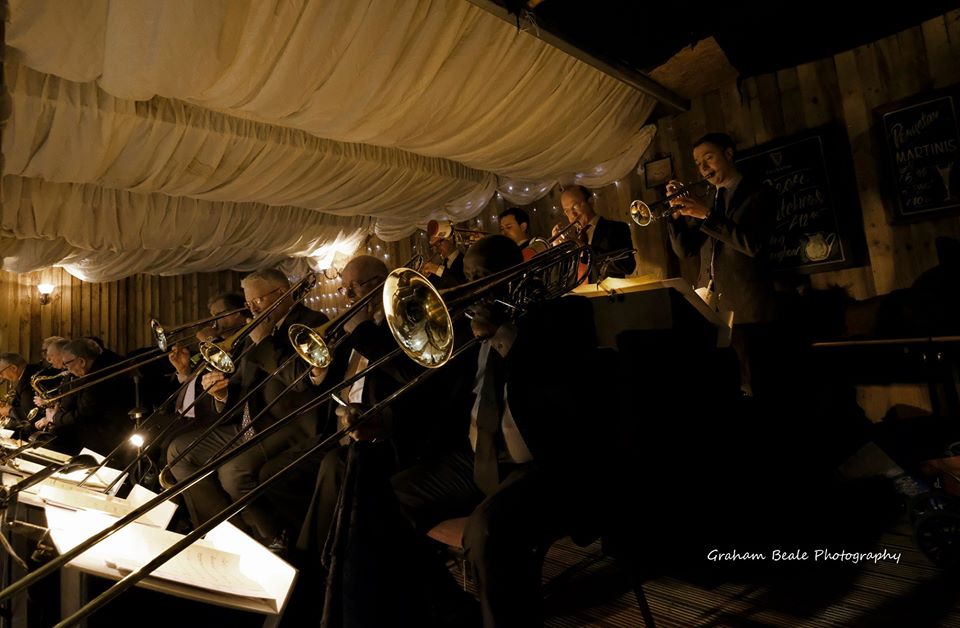The Column: Eddie Myer – It Don’t Mean A Thing If It Ain’t Challenging Patriarchal Norms

This column has touched before on the relations between jazz and politics, and we’re about to plunge headfirst back into those bracingly icy waters by drawing attention to a controversy that flared up this month and has continued to flicker fitfully ever since. As the focus of the Left has shifted from issues of class dialectics to issues of personal identity, so has the focus of jazz’s political debate increasingly centred around issues of identity and ownership. This was brought to the forefront as a result of comments made in the course of a conversation between two pianists on a Blue Note Jazz Cruise ship. The ivory ticklers in question were Ethan Iverson, primary composer for gymnastically virtuosic trio The Bad Plus, and Robert Glasper, much lionised bandleader famed for his ambivalence towards the existing status quo of tradition and his enthusiasm for cross-over experiments into funk and fusion. The conversation was published by Iverson on his blog, and one comment in particular attracted a great deal more attention than either participant had anticipated.
The conversation had turned, as conversations with Glasper often do, to the relationship between the jazz tradition and other currents of contemporary black music. The talk then turned to other pianists, scurrilous allegations against Cecil Taylor and Richie Beirach, and some of the minutiae of performance practice, but not before Glasper had dropped the following bombshell – readers of a sensitive disposition may want to look away now:
“I’ve seen what that does to the audience, playing that groove. I love making the audience feel that way. Getting back to women: women love that. They don’t love a whole lot of soloing. When you hit that one groove and stay there, it’s like musical clitoris. You’re there, you stay on that groove, and the women’s eyes close and they start to sway, going into a trance.”
No sooner had the interview been posted then comments started to fly. Glasper was taken to task for sanctioning misogyny, perpetuating condescending stereotypes, objectifying women and denying them the right to any meaningful place within jazz, or even within the entire sphere of artistic endeavour, due to his apparent assertion they are primitive, elemental beings unable to transcend the immediate urgings of their physical bodies. Iverson was attacked for publishing his comments unedited, thus giving Glasper’s unacceptable views a platform. He attempted to defend himself on this charge, but only dug himself into a deeper hole by suggesting that his critics were indirectly responsible for the election of Donald Trump. His wife, the author Sarah Denning, also weighed in, though her input was muddied for some by her insistence on tying the issue to her perspectives on the world of women’s featherweight boxing, with which many readers may be unfamiliar. Iverson then recanted on his recantation but the damage was done and the furore of internet outrage continued. Glasper has not taken the high road in his response.
The issue is a fascinating one, laden with many layers of significance. While few would agree that Glasper’s comment deserves to go unchallenged in the public sphere in itself, there was also a lively debate over the level of significance it should be accorded. Some defended Iverson’s decision to publish it – others attacked it, on the grounds that publishing was an endorsement or at very least a perpetuation.It was pointed out that his blog had run interviews with over 40 male jazz musicians, but not a single female one. There is the continuing issue of women’s representation in the musical world generally, and the jazz world in particular – who hasn’t encountered the expectation that the woman in the poster will inevitably be ‘the singer’ , and the entire package of derogatory stereotypes that comes with that assumption? The Lincoln Centre has belatedly addressed these issues by starting to hold ‘blind’ auditions for posts in its orchestras – similar procedures in the classical world have seen the representation of women in US symphony orchestra go from 5% to 50% since the 1970s, graphically illustrating how wide the gap in opportunity had been. There are also wider issues of racial stereotyping and the portrayal of women in the hip-hop and R & B cultures that Glasper admires – and, historically, in the jazz world as well. Some educators demanded that Glasper’s work should be removed from studies curricula, although if every sexist or misogynist were treated accordingly the jazz archive would be slim indeed – the autobiography of Miles Davis is a prominent, but by no means unique, repository of hideously chauvinistic attitudes, and Art Taylor’s fascinating series of interviews published as Notes And Tones contains numerous examples of revered jazz authorities voicing challenging opinions. One factor that has been underplayed is that Glasper is talking about women in very similar terms to those that were once used to describe black culture in general and jazz music in particular. The 1933 OED defined jazz thus:
“To play jazz; to dance to jazz music, a type of music originating among American Negroes, characterized by a regular or forceful rhythm, often in common time, and a ‘swinging’ quality …
… to move in a grotesque or fantastic manner; to behave wildly; to have sexual intercourse”
If the common package of negative stereotypes in early 20th Century American and European society included ideas that black people were ‘primitive’ and in touch with ‘elemental’ human urges but unable to attain higher cultural achievements, then Glasper’s view of women seems to coincide with this at many points.
Beyond these ramifications, we can also glimpse the continuing unease at the way jazz has moved from being popular music of the dancehall to esoteric music of the concert auditorium. If the Bad Plus’s rigourously intellectual oeuvre exemplifies the latter position, then Glasper seems perpetually caught between the two. He seems to be regarded with suspicion by some of his jazz musician peers, but among young fans there’s no question as to who has the higher profile. The infamous interview is an interesting read and has a number of valid points about matters musical that have been completely overshadowed by what seems to have been an episode of crass boys-together boasting of a sort that will be familiar to anyone who’s spent time backstage. You can read it below and decide for yourselves what the appropriate response should be; and, if you’re minded, you can see Mr. Glasper in person when he visits Sussex as part of this year’s increasingly spectacular Love Supreme line-up.
https://ethaniverson.com/interview-with-robert-glasper/
Michelle Mercer writing for NPR
Jazz at Lincoln Center Adopts Blind Auditions


